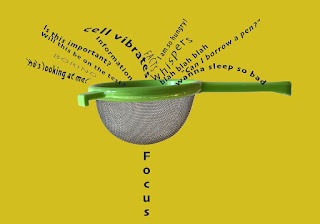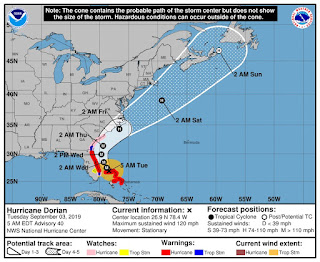Cage Match: Private vs. Public Infrastructure
Monday, September 30, 2019
My renewed attention to hurricanes indirectly led me to uncover an interesting counterexample to a common misconception. Practically everyone assumes that we need government to undertake massive civil works projects, or at least to make sure that such projects meet minimal safety standards.
 |
| Image by Tony Webster, via Wikipedia, license. |
Louisiana Governor Huey Long [aka, the Bayou Bolshevik --ed] was opposed to toll bridges and offered to have the state purchase the bridge from its private owners. The offer was rejected, so Governor Long constructed two free bridges to the east along U.S. Route 90 across Chef Menteur Pass and the Rigolets Pass. With a free alternative, the toll bridge faced financial ruin and was sold to the state in 1938 for $940,000. Following the purchase, the bridge's name was changed to the Maestri Bridge, named after Robert Maestri, the mayor of New Orleans. U.S. Route 11, formerly co-signed with U.S. Route 90 across the Chef Menteur and Rigolets Bridges, was re-routed onto the Maestri Bridge around 1941.The Maestri Bridge was privately built as the Pontchartrain Bridge about 1928 and withstood the wrath of Katrina, while two much newer, government-built bridges (at least one of which had twin spans) completely failed.
In 2005, Hurricane Katrina virtually destroyed the I-10 Twin Span Bridge to the east. However, due to its sturdy construction, the Maestri Bridge was largely undamaged and was the only route to New Orleans from the East until the Twin Spans could be temporarily fixed (US-90 was also closed due to damage to the Fort Pike Bridge). [Links omitted. Bold added.]
This alone is hardly conclusive proof of the superiority of capitalism, but it does call into question the stereotype of the "profiteer" as a shady, short-range operator out to make a quick buck, his customers' safety and tomorrow be damned. And it should also make us wonder why two newer bridges (three or four, if you count spans) constructed for "the common good" under "strict" government supervision failed.
We could -- and should -- go further to think about industries where the government already offers "free" alternatives, such as education. And the fact that the government wants to offer such an "alternative" in another important industry, medicine, should give us pause to say the least. What are we missing in the former case, and what will we miss in the latter, perhaps after it is too late?
-- CAV



















